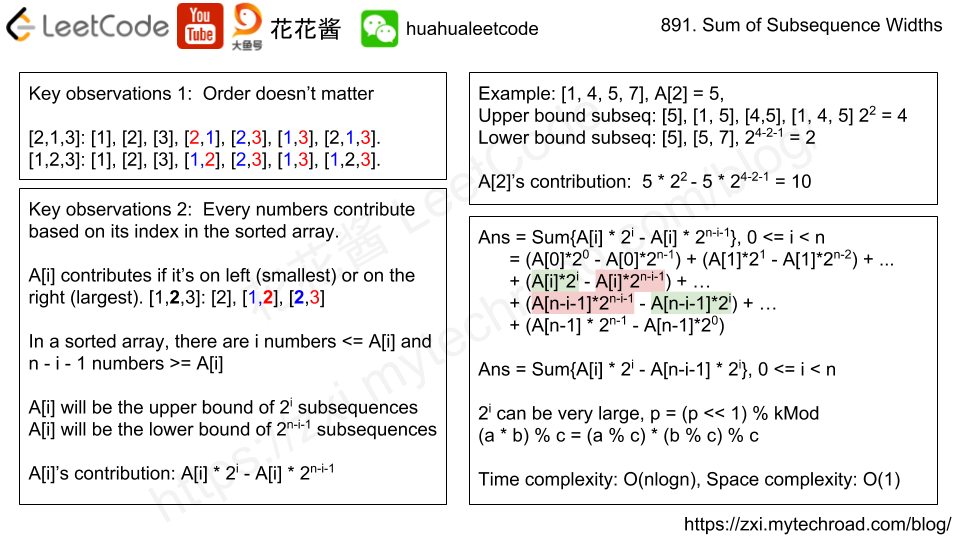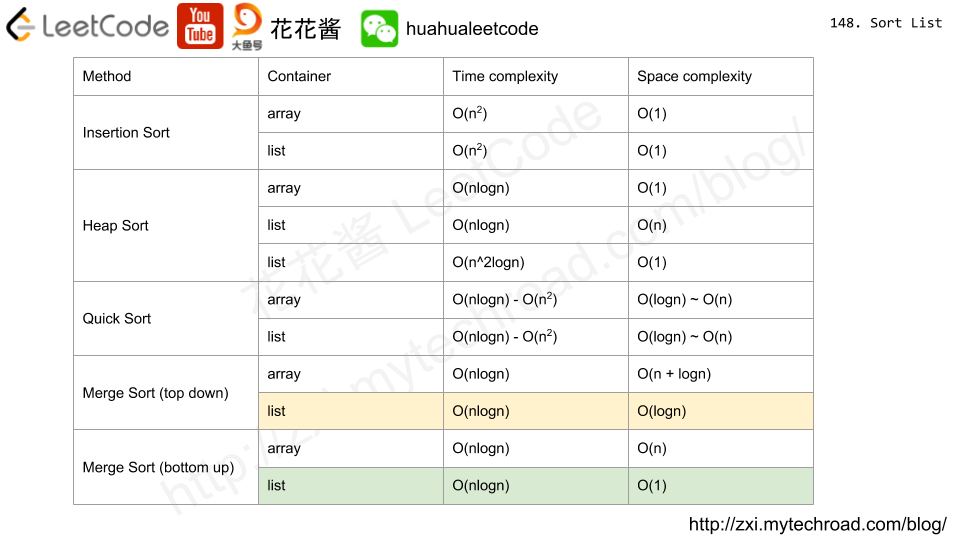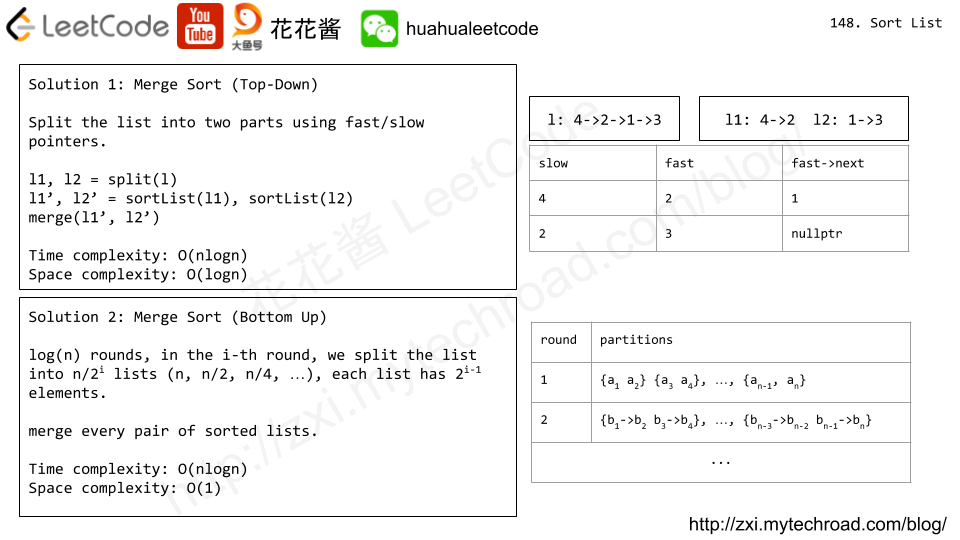Problem
Given an array A of non-negative integers, return an array consisting of all the even elements of A, followed by all the odd elements of A.
You may return any answer array that satisfies this condition.
Example 1:
|
1 2 3 |
<strong>Input: </strong><span id="example-input-1-1">[3,1,2,4]</span> <strong>Output: </strong><span id="example-output-1">[2,4,3,1]</span> The outputs [4,2,3,1], [2,4,1,3], and [4,2,1,3] would also be accepted. |
Note:
1 <= A.length <= 50000 <= A[i] <= 5000
Solution 1: Split Odd/Even
Time complexity: O(n)
Space complexity: O(n)
C++
|
1 2 3 4 5 6 7 8 9 10 11 12 13 14 |
// Author: Huahua, 44 ms class Solution { public: vector<int> sortArrayByParity(vector<int>& A) { vector<int> even; vector<int> odd; for (int a : A) { if (a % 2) odd.push_back(a); else even.push_back(a); } even.insert(end(even), begin(odd), end(odd)); return even; } }; |
Solution 2: Stable sort by key % 2
Time complexity: O(nlogn)
Space complexity: O(1) in-place
C++
|
1 2 3 4 5 6 7 8 9 10 |
// Author: Huahua, 52 ms class Solution { public: vector<int> sortArrayByParity(vector<int>& A) { stable_sort(begin(A), end(A), [](int a, int b){ return a % 2 < b % 2; }); return A; } }; |


